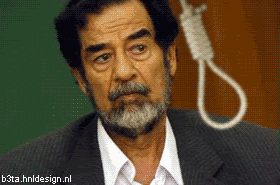Hello, 9-1-1? Our EMS is Dying!!
Gentle readers, it isn't the murder rate in Philadelphia that will pre-occupy the thoughts of newly-elected mayor, Michael Nutter. It is the city's ability (or lack thereof) to provide a vital service to the community that needs fixing, first and foremost.
Captain America, quoting the "paper that shall not be named here," started the blogging earlier this week:
Once again Philly Fire is in the news and the EMS situation is on the front page. As usual the news isn't good. Today's article in the XXXXX XXXX is about the city's failure to use private ambulances. As usual the Main Stream Media is way off base and their ignorance of the subject invalidates their coverage.
Lets start of with an overview: In Philadelphia, the Fire Department is the Marine Corps of the city's operating departments. Whenever something goes wrong, you can call 911 and you will get a firetruck to help resolve the situation. We respond to an estimated 280,000 calls a year and that number keeps going up.
Many years ago the Fire Department began operating the city's ambulances kind of by default. What began as an after thought evolved over time into a landslide. Today between 220,000 & 240,000 of our calls are for emergency medical service. Over the years 911 has degenerated from an emergency lifeline to the first choice of any citizen who needs a ride to the local emergency room. This was never the intent of 911. Remember the slogan "To stop a crime or save a life" call 911? Those days are long gone. Now the system is completely overloaded and unable to function properly under the crushing workload of everyday operations.
(snip)
Now the chickens have come to roost. People are dying because the system is melting down. Too many calls and not nearly enough ambulances. There are some tough decisions that will have to be made and soon. The talk in this article about private companies is a red herring. The Fire Department can't depend on outside resources to accomplish it's primary mission. That's why private companies aren't used. Also private companies are only far too willing to work in areas where there are plenty of paying customers with lots of insurance. They don't want to venture into the badlands to pick up the shootings and stabbings. The PFD makes no distinction as to where a call comes from we respond to everything, all the time.
The most recent death made national news (yet another black eye for the City):
Deborah Payne, Rotan Lee, Ricky Badway and Danny Rumph all have something in common. They're dead. And they died after waiting anywhere from 19 minutes to more than an hour for an ambulance in Philadelphia.
The latest incident occurred just a few weeks ago, in the early morning hours on New Year's Day. According to a Philadelphia Fire Department timeline, Payne dialed 911 at 2:30 a.m.
And so Payne and the firefighters waited. And waited. According to the fire department timeline, an emergency vehicle finally reached Payne about an hour after her first call, only to break down. Payne died while waiting for a second EMS vehicle to arrive.
It's a story Candy Owens said sounded sickeningly familiar. On Mother's Day in 2005, Rumph, Owens' 21-year-old son, was playing a game of pickup basketball at the Mallery Recreation Center in Philadelphia when he collapsed at 10:30 p.m. His friends dialed 911. They also called Owens.
"It was horrible. I watched my son die. It was the worst experience of my life," Owens said. According to Owens, it took an EMS crew 41 minutes to arrive, traveling halfway across the city.
The national standard for response time by emergency vehicles is eight minutes and 59 seconds or less. But according to a city controller's report released last month, one-third of Philadelphia's ambulances took 10 minutes or longer to respond in 2006. And there are just 28 ambulances in full-time service for a city with a population of 1.5 million.
Demand Up, but Supply Scarce
Philadelphia City Controller Alan Butkovitz said he ordered the study of the EMS system because of some troubling information.
"We know that since 1999, demand for ambulance services has almost doubled," he said. "We had been hearing about problems from paramedics for years now."
Butkovitz said his report showed that although the recommended average number of runs for an emergency unit is 2,500 to 3,500 a year, several vehicles in Philadelphia have handled more than 8,000 runs a year. And those vehicles are subject to break down more often because they are in use almost constantly. The report also found that "poor morale among many paramedics is fueling discontent and increasing turnover." In fact, the paramedic turnover ratio is now more than 50 percent.
"Here's the deal. People wait a long time every day. Pretty much every day somebody is having a delayed response. Somebody is waiting a long time. And somebody is getting a fire truck and going without an ambulance every day," said Dave Kearney, a 20-year EMS veteran who is now a firefighter and secretary of the Philadelphia Fire Fighters Union.
Kearney said the members of a typical Philadelphia EMS crew get their first call as they walk through the door at 7:30 a.m. and they might get back to the station "once that day."
Private Services Out of the Loop
Unlike fire departments in many other major cities, the Philadelphia Fire Department has no agreement to call on private ambulance companies when its ambulances are already tied up and delayed answering new calls.
The fact that a system the size of Philadelphia's doesn't have such a back-up program — known as mutual aid — surprises Jim McPartlon, president of the American Ambulance Association.
"In any progressive and quality EMS system, response times should be adhered to and if that can't be adhered to they should have mutual aid." he said.
In Payne's situation, a private ambulance company was just blocks away.
"What if a 9/11 happened here? Would they seriously not put out a call to private companies and just try to do it all themselves?" said Butkovitz, the city controller.
In the 1990s, a growing number of large ambulance companies, such as American Medical Response, started competing with fire departments for the often lucrative emergency response and patient transport market. Fire departments had traditionally handled all 911 calls, and after treating and stabilizing a patient, they left the transport up to an ambulance service.
The "ambulance wars" heated up when fire departments in some communities started fighting back, taking over the entire paramedic business from private companies.
Fire officials insist they are best situated to provide the most effective and professional response.
"If somebody is breaking into your house, do you want the security guard from Wal-Mart showing up to help or the police? Do you see what I'm saying? Do you want to take your chances with some fly-by-night ambulance company?" Kearney said. (TM - That's a cheap shot, Kearney! More on that below!)
But that's not the way Owens sees it. She said she would have taken the chance on anybody if they could have saved her son.
As for a mutual aid system, Ayers said that "nothing is off the table" but added that there are "legal issues and union issues" that have to be worked out.
The TrekMedic (a 28-year veteran of the EMS) continues (and seethes):
OK,..first, you'll notice that Captain America makes the statement about the chickens coming home to roost.
With all deference to C/A and the PFD, here's why that is happening:
In 1991, the Commonwealth of Pennsylvania enacted ACT 45, the ambulance service licensing law. The Commonwealth was divided into more than a dozen administrative regions, acting under the authority of the PA Department of Health.
Philadelphia became its own region, due to its overwhelming size and population. Who became the agency authorized to carry out ACT 45? That's right, the Philadelphia Fire Department. The PFD only recognizes itself as the sole provider of 9-1-1 based pre-hospital care in the City. It treated private ambulance services, and the 12 or so community volunteer ambulances that existed in Philadelphia, some pre-dating the PFD's EMS program. I should know; I got my start at the now-defunct Wynne-Brook Community Ambulance, which served Overbrook and Wynnefield for 3 decades!
What transpired over the next 17 years? Private ambulance services operated in Philadelphia much like any business. The Philadelphia Regional Office of Emergency Medical Services became another government-run boondoggle, not unlike the recently-scandalous Licenses & Inspections Office.
Private ambulances learned the byzantine workings of PROEMS and found ways to circumnavigate the Commonwealth's rules and regulations in favor of higher profits.
In that respect, Mr. Kearney is justified in his remarks.
The solution to the problem? Its been brushed off by that "union issue" remark. Of course! Philadelphia is a union-dominated city and the IAFF Local 22 isn't going to allow non-union labor to operate in their playground, no matter how many dead bodies they push out of there way to make their point!
Here's the TrekMedic solution:
- Get PROEMS out of the hands of the PFD and into the hands of the City's Department of Health! Pre-hospital care is a HEALTH issue, not a fire prevention issue. Let those brave men and women do their jobs - putting out and preventing fires and saving lives!
- Get EMS out of the hands of the PFD, which has treated the service like a bastard step-child from Day 1 and also bring it over to the Department of Health. See #1 for the rationale.
- Make private ambulance services adhere to the same rules as the City's EMS service and reward those who do with mutual aid contracts. Those who don't should be blacklisted by the City. And keep a close scrutiny over who owns the private services (trust me when I say the Russian mob has a great deal to do with this in NE Philly!)
Stop the madness and start saving lives!!!
Labels: EMS, Philliness


























7 Comments:
What happened to a city caring about what happens to its citizens (and visitors to that city)?
I feel bad for those left in the position to treat the infirmed and those that are charged with protection. It must be daunting to know that you're not "allowed" to do your job as it should be done.
Trek- the crux of the problem is this: There are people who make the rules in this city who believe for social-welfare reasons that Fire-Rescue should be in the business of delivering free health care to anyone and everyone who calls. Period. Now that presents a problem for private carriers because they have to take sick people who are in need of an ambulance who can pay, not people who are to lazy to go to their primary care doctor and can't pay. So we get stuck doing it.
The city has also encouraged everyone to call for every reason for many years so now it's part of our culture. Non emergency transport is 80% of what we do. It is not a mission we asked for, it is a mission thrust upon us. We can't make money doing it and neither can private carriers (thats why they only want parts of the city) the ones who can pay.
Now even though we were given the mission and the Charter puts it on us, we were never funded where we need to be. NO department could have absorbed this mission as long as we have with as little or no funding increase like we have. When it comes to emergency's PFD should always be the lead agency within the city. There should be no reason for us to run out of squads in the first place. Also no job would tolerate non-Union outfits coming in and taking it's work for less money. There is nothing stopping any citizen from calling their local ambulance company for a ride to the hospital. (I used to do the private ambo thing as well). If the privates advertise their services then maybe they will get more business. Somehow I think people will just call 911 though.
The PFD is generally well run in spite of our poor administration and thats because of the rank and file. If I were in charge things would be a whole lot different.EMS is still a clusterf*ck and will continue to be until we have about 60 - 80 full time units. It's that simple.
One more thing: The PFD is well aware of these problems and Local 22 has been screaming about them for years. (Look up my other blog posts on the subject) I was interviewed by a reporter who did several stories about the problems. Unfortunately our hands have been tied by previous administrations. John Street didn't care about people being shot dead why would he care about the ambulances that were supposed to pick them up?
He hated us because we didn't support him and that is pretty much that. Remember Local 22 stopped 8 companies from being closed. So we are in a perpetual funding crisis. We have to fight for these Medic Units. If we were funded where we should be we wouldn't have this problem. It is not a problem of us not being capable of doing the job, it is a problem of not having the resources to do it. Thus the answer is not to give our work away, it is to give us the tools we need to do it.
The Health Department has no experience in running an ambulance service. What makes anyone think they could do it better? The medics don't want to go there and they would just have to give them 20 million dollars to get the program up and running. Emergency care is a whole different animal that medical care.
C/A - thank you for your eloquent input. I really appreciate the POV of a city FF.
As to why I'm pushing for the Health Department to oversee/operate EMS, its because that's how it works in the 'burbs. Chester County and Delaware County operate the oversight through their respective depts of health, utilizing pre-hospital personnel. Why not in Philly?
Dude as you probably know most things work better in the Burbs'. Thats why we all want to move there. The burbs have a much better grip on things because they are usually much smaller and have better clientèle. You know people who pay taxes and only call because it's an EMERGENCY.
In the city there are many factors that have to be taken into account that have nothing to do with the overall mission. Everything from hiring standards to policy affect the overall process often to our (And the citizens) detriment.
Simply put doing the best possible job with the best possible people is not first and foremost. Just like with the Police Dept. It is often handcuff your people so they can't do their job, hire people who have no ability or business being there but fit a certain demographic then complain when things go south.
The health Department is just another ponderous bureaucracy that has no history or experience delivering emergency care. They are lucky to be able to deliver routine care. Putting EMS in their hands would require huge budget increases for infrastructure alone. They would also have to develop a system that is already in place within the PFD. It would also add another layer of bureaucracy to emergency incidents. A layer we don't need.
The solution is pretty simple. Give the PFD the money it needs to field enough units to handle the call volume. Start a call screening protocol (None exists now) and expand the EMS system into a full fledged division within PFD. Sprinkle in some of our good guys to run it (Not the bozo's we have now) and you will see a vast improvement. At the end of the day it's not rocket science.
Stay Safe Dude.
Agreed on all points!
Interesting post.
Do fire/rescue/911 services here find themselves being inundated with non-emergency calls on a regular basis from people who don't have the common sense to know that cutting yourself shaving while washing in warm water doesn't necessarily mean you have a life or death emergency?
Coming as an employee from a different type of emergency response system, I find that all too often people simply lack the common sense to be able to judge a true emergency and frequently rush towards emergency services at the drop of a hat, or in some cases, the whisper of a fart.
Trek, I coudn't find your email so if you want to discuss it in more detail, feel free to fire back.
Email's on my site.
Post a Comment
<< Home